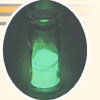| , |
II. Attacking the Mystery
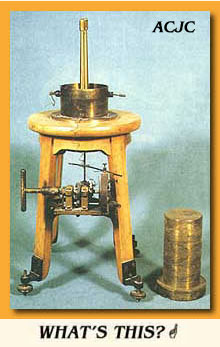
 o study the rays, Marie Curie used a property that Becquerel had discovered. When uranium rays passed through the air near an electrical measuring instrument, he found, the instrument detected a difference. Marie Curie was lucky to have at hand just the right kind of instrument—a very sensitive and precise device—invented about 15 years earlier by Pierre Curie and his brother, Jacques. Marie used this “Curie electrometer” to make exact measurements of the tiny electrical changes that uranium rays caused as they passed through air. Great care was needed to get reliable numbers. As she measured the rays from different uranium compounds, she discovered that the more uranium atoms in a substance, the more intense the rays the substance gave off. Trying to see what was so special about uranium, she tested minerals containing other elements. She found that thorium compounds also gave off “Becquerel rays.” o study the rays, Marie Curie used a property that Becquerel had discovered. When uranium rays passed through the air near an electrical measuring instrument, he found, the instrument detected a difference. Marie Curie was lucky to have at hand just the right kind of instrument—a very sensitive and precise device—invented about 15 years earlier by Pierre Curie and his brother, Jacques. Marie used this “Curie electrometer” to make exact measurements of the tiny electrical changes that uranium rays caused as they passed through air. Great care was needed to get reliable numbers. As she measured the rays from different uranium compounds, she discovered that the more uranium atoms in a substance, the more intense the rays the substance gave off. Trying to see what was so special about uranium, she tested minerals containing other elements. She found that thorium compounds also gave off “Becquerel rays.”
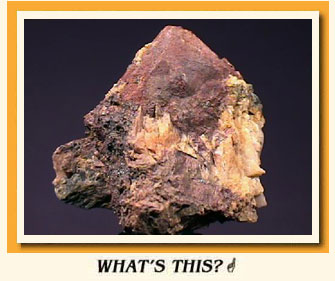
 arie discovered that the mineral pitchblende was more radioactive than could be accounted for by the uranium or thorium it contained. She was convinced that a careful analysis of pitchblende would uncover a new radioactive element. Pierre, excited by his wife’s idea, joined her search. arie discovered that the mineral pitchblende was more radioactive than could be accounted for by the uranium or thorium it contained. She was convinced that a careful analysis of pitchblende would uncover a new radioactive element. Pierre, excited by his wife’s idea, joined her search.
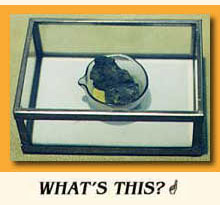
 he Curies used standard chemical procedures to separate the different substances in pitchblende. For example, a particular element might dissolve in an acid, which they could pour off, leaving other elements behind in a sludge at the bottom of the pot. After the materials were separated into different types of compounds, the Curies used a new method of chemical analysis. The trick they invented was to find which of the separated parts was most radioactive, using the Curie electrometer to make precise measurements. Then they would make more separations, again and again, tracking down the unknown element by its radioactivity. he Curies used standard chemical procedures to separate the different substances in pitchblende. For example, a particular element might dissolve in an acid, which they could pour off, leaving other elements behind in a sludge at the bottom of the pot. After the materials were separated into different types of compounds, the Curies used a new method of chemical analysis. The trick they invented was to find which of the separated parts was most radioactive, using the Curie electrometer to make precise measurements. Then they would make more separations, again and again, tracking down the unknown element by its radioactivity.
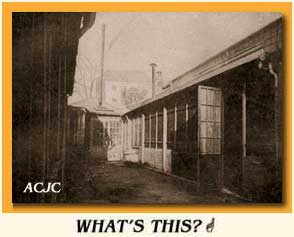
 n
the end they found
not one but two new radioactive elements. The substance they named “polonium”
behaved chemically about the same as an element that was already known,
bismuth, and the substance they named “radium” had about the
same chemistry as the element barium. But polonium and radium were different
from the known elements in one big way—each was strongly radioactive. n
the end they found
not one but two new radioactive elements. The substance they named “polonium”
behaved chemically about the same as an element that was already known,
bismuth, and the substance they named “radium” had about the
same chemistry as the element barium. But polonium and radium were different
from the known elements in one big way—each was strongly radioactive.
|
|

